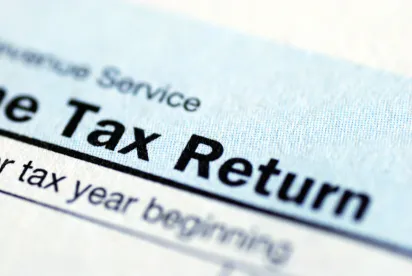Statutes of limitation prescribe a period of limitation for the bringing of certain types of action. There are three such statutes of limitation that come into play when dealing with the Internal Revenue Service. These limitations periods relate to tax refunds, IRS examination and assessment, and IRS collections.
How long do you have to file a claim for refund?
Under IRC 6511(a), a taxpayer has three years from the date of filing a tax return to claim a credit or refund, or two years from the date the tax was paid, whichever is later. If a taxpayer files his/her return or makes payment prior to the date prescribed for doing so, the return or payment is considered filed or paid on that last day for doing so. Further, for claims for refund not filed within the three year period, the amount of the refund is limited to the portion of the tax that was paid within the two years preceding the filing of the claim. IRC 6511(b). There are exceptions to these general rules, however, and you should consult with a tax attorney to see if those exceptions apply in your case.
The IRS estimates that it has $1.4 billion in refunds for taxpayers that did not file an income tax return (Form 1040) for the 2015 tax year. In order to be entitled to their refunds, most taxpayers must file their 2015 return no later than April 15, 2019. If the 2015 tax return is not filed by that date, the tax refund will become property of the U.S. Treasury.
How long does the IRS have to audit your return?
Generally speaking, the IRS has three years from the due date of your tax return or three years from the date it was filed, whichever is later, to audit your return and make an assessment. However, there are exceptions that may apply to extend the audit period:
- If there is a substantial omission of gross income, then the IRS has six years to make an assessment. A substantial omission of gross income is one that amounts to more than 25 percent of the amount reported on the tax return.
- If the additional tax is related to undisclosed foreign financial assets and the omitted income is more than $5,000, the IRS has six years to make an assessment.
- The statute of limitation is open indefinitely if the taxpayer has filed a false or fraudulent tax return.
Keep in mind, the statute of limitation on assessment does not start to run until a tax return has been filed. If a tax return has not been filed, the statute for assessment remains open.
How long can the IRS collect a tax liability?
Generally speaking, the statute of limitation for the IRS to collect on a tax debt, plus penalties and interest, is 10 years from the date of assessment. Note that this is 10 years from the date of the assessment, not 10 years from the due date of the return. In addition, this 10-year period can be suspended under certain circumstances, including:
- if the taxpayer has filed for bankruptcy protection, plus an additional six months
- if the taxpayer resides outside of the US for at least six months
- if the taxpayer files a request for a collection due process hearing
- if the taxpayer files a claim for innocent spouse relief
- if the taxpayer files for an offer-in compromise (OIC)
- while there is a pending installment agreement request
Finally, the IRS can take action to collect beyond the 10-year limitation period by filing suit to reduce the assessments to judgment.



 />i
/>i

